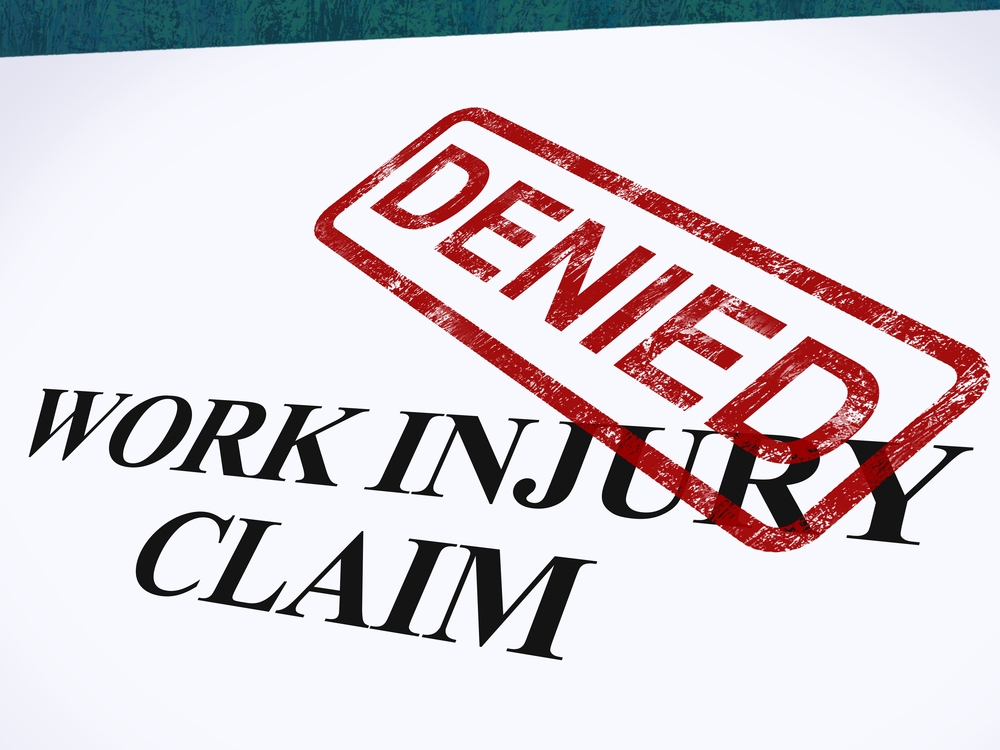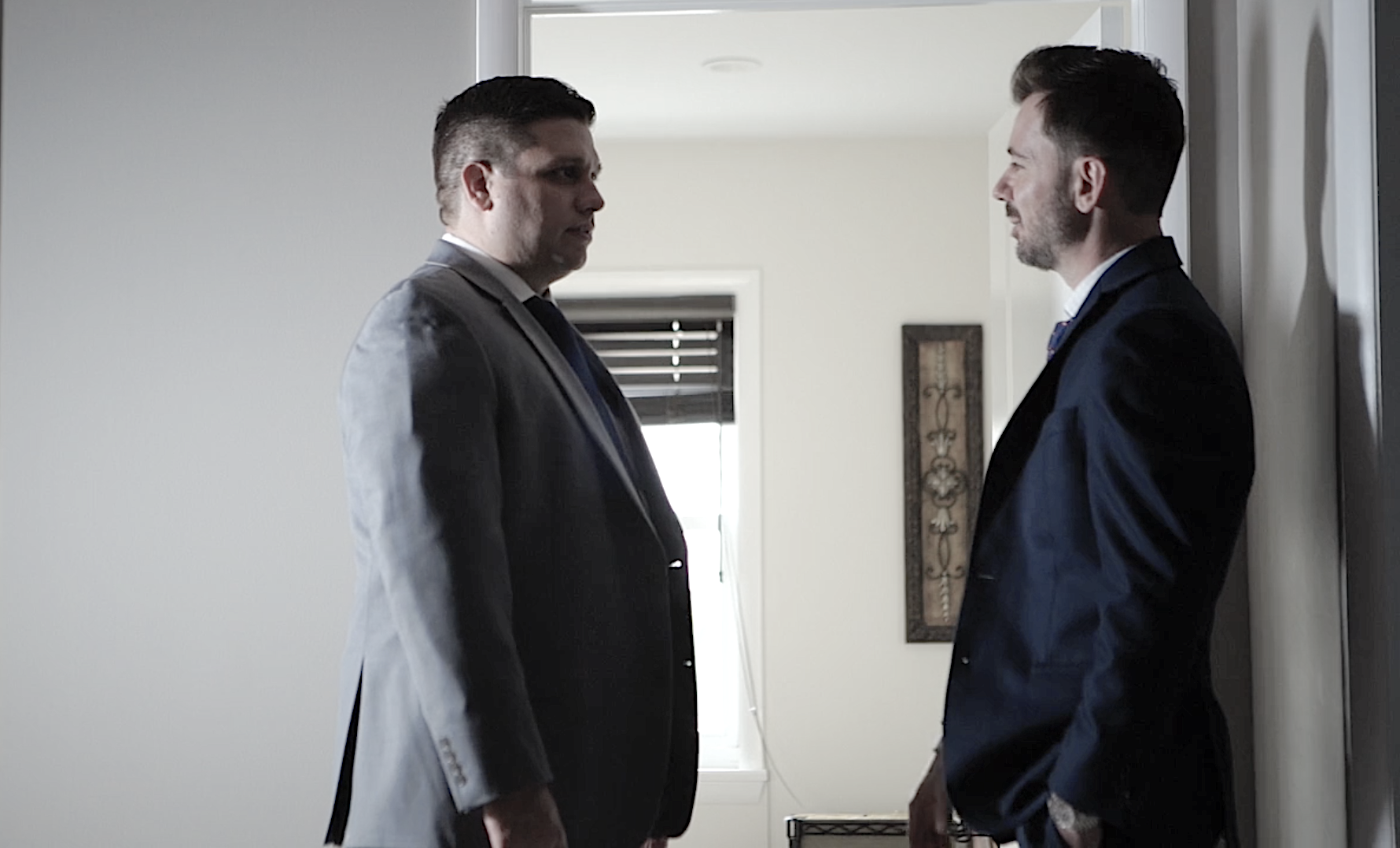
Denied Claims Attorneys In Totowa, NJ Advocate For Clients In Passaic County, Hudson County, Essex County, Bergen County, And Throughout NJ Who Have Been Denied Workers’ Compensation Benefits For A Work Injury Or Occupational Disease
Although the workers’ compensation system in New Jersey exists to ensure that you get the financial benefits you need to recover from a work injury or occupational disease, you may be left shocked and confused when your employer or its workers’ compensation insurer denies your injury or occupational disease claim or rejects your request for certain benefits. New Jersey denied workers’ compensation claim lawyers can help you through the process of appealing the denial of your workers’ comp claim to pursue the benefits and financial help you need during this difficult time.
If your workers’ compensation claim was denied after you suffered a work-related injury or illness, get the legal representation you need to fight for your right to receive financial benefits for your recovery. Reach out to Camili & Capo, PA for a free initial claim evaluation to discuss your options for appealing a denied workers’ comp claim with a denied workers’ comp claim attorney in Passaic County, NJ.
Get Free Advice From An Experienced Workers’ Compensation Lawyer. All You Have To Do Is Call (973) 834-8457 or Fill Out Our Free Case Evaluation Form.
Why Are Workers’ Compensation Claims Denied?
Workers’ compensation claims by injured or ill employees might be denied for a wide range of apparently legitimate or reasonable causes, such as:
- The claim was untimely filed
- The claimant does not qualify as an employee eligible for workers’ compensation
- The claimant’s injury or illness did not arise in the course and scope of their employment
- The claimant provided insufficient information in connection with their claim
- The claimant’s injury or illness arose under circumstances that disqualifies one from workers’ compensation, such as during the commission of a crime, an attempted homicide or suicide, or engaging in workplace horseplay
- The claimant’s treating provider has cleared the claimant ot return to work
- The claimant has refused a part-time or modified-duty position within the claimant’s physical restrictions
While some claim denials can be overturned by providing additional supporting information, in other cases employers or workers’ compensation insurers deny claimants in an attempt to avoid liability for paying benefits to injured or ill employees. No matter the reason for a claim denial, if you are entitled to workers’ comp benefits, you have options for appealing the denial of your claim.
- ★★★★★
Mr. Camili provided excellent service […] I highly recommend his firm.
Hatije Kazaferi - ★★★★★
Anyone who is in need of legal representation should contact Camili & Capo. This guy knows what he’s doing!
Enver Mustafoski - ★★★★★
His team has always gone above and beyond for me and my clients. I would highly recommend his firm to everyone.
Besfort Ramadani
The Workers’ Compensation Claims And Appeal Process
A workers’ compensation claim begins when you provide your employer with notice of your work injury or occupational illness. Typically, notice must be given within 14 days of a workplace accident, but no later than 90 days after the accident. If your employer or its insurer denies your claim after you give notice, you can appeal to the New Jersey Division of Workers’ Compensation either by filing an application for an informal hearing or a claim petition for a formal hearing. An informal hearing is a mediation-like proceeding where a workers’ compensation judge will attempt to mediate a resolution between you and your employer. A formal hearing is a more trial-like proceeding where you and your employer will have the opportunity to present evidence and witnesses. Following the formal hearing, the workers’ compensation judge will issue a decision either granting your claim and awarding you benefits or denying your claim. If your claim is denied, you have the option of filing an appeal to the New Jersey state courts.
- $88TWork Injury
- $35TSlip and Fall Accidents
- $20TCar Accidents
How Can New Jersey Denied Workers’ Compensation Claim Lawyers Help You Demand The Benefits You Deserve?
A denied workers’ comp claim attorney in Passaic County, NJ from Camili & Capo, PA can help you navigate the process of appealing your employer’s or its insurer’s denial of your claim for benefits by:
- Fully investigating the facts and circumstances behind your work injury or occupational illness to have all available evidence and information to support your claim
- Going over your legal options in the claims process with you so that you know what to expect at each stage
- Negotiating with your employer or its workers’ compensation insurer to try to obtain an approval of your claim and request for benefits
- Bringing in experts when their opinion testimony may be needed to strengthen your case
- Filing claim petitions with the state and representing you in proceedings before the Division of Workers’ Compensation, or taking your claim to court if necessary to fight for the benefits you need
Get Free Advice From An Experienced Work Injury Lawyer. All You Have To Do Is Call (973) 834-8457 or Fill Out Our Free Case Evaluation Form.
Contact Our Firm To Go Over Your Legal Options With A Denied Workers’ Comp Claim Attorney In Passaic County, NJ
After you have received a notice of denial of your workers’ comp claim, turn to the experienced advocates of Camili & Capo, PA for help in fighting for the benefits you deserve. Contact us today for a free, no-obligation consultation to learn more about how New Jersey denied workers’ compensation claim lawyers from our firm can assist you with appealing your denied workers’ compensation claim.

